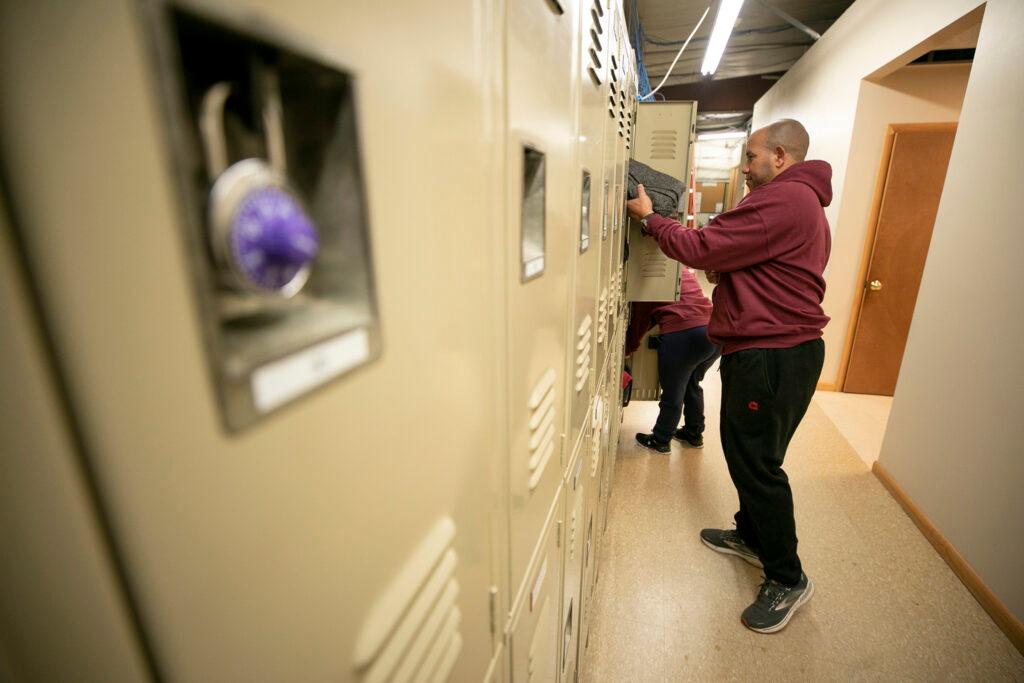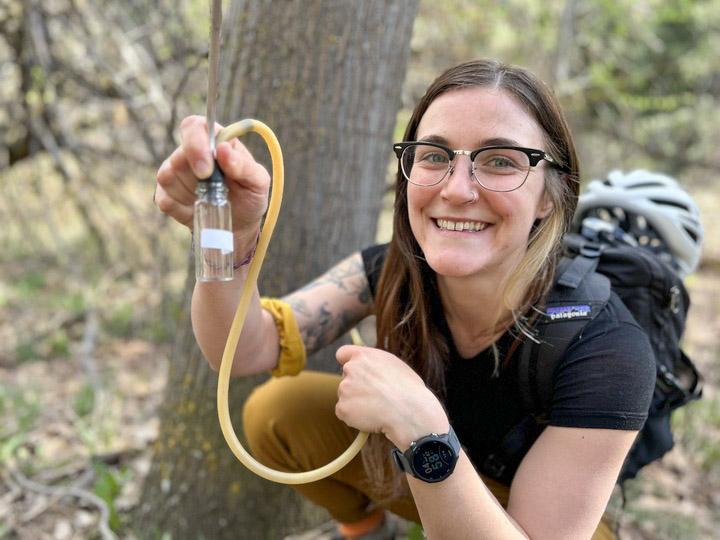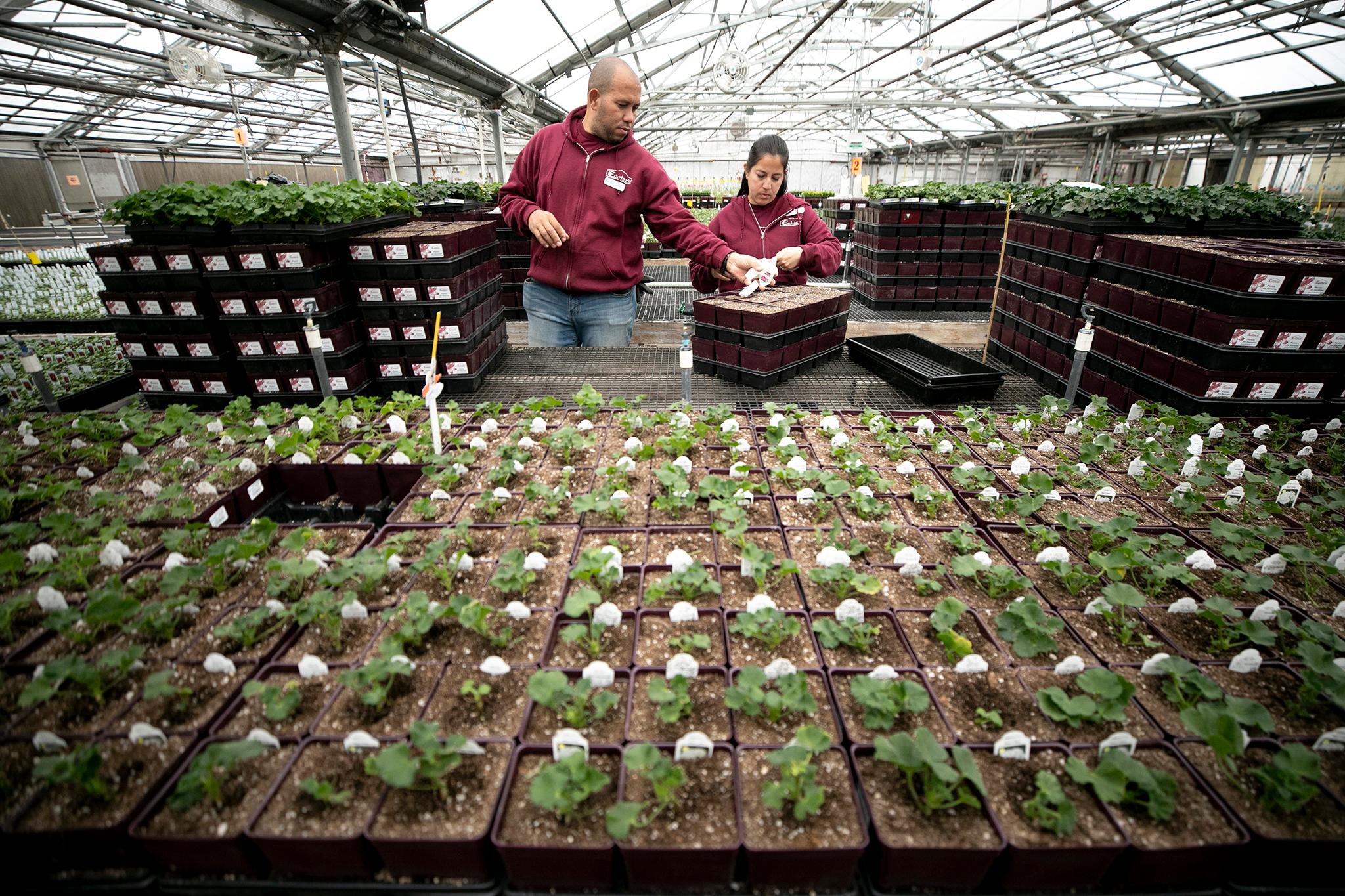
Sunlight filtered into a greenhouse at Echter’s Nursery and Garden Center on a February morning. The air was chilly outside, but inside dozens of tiny geraniums were already poking out of their trays, waiting for a drink of water from workers roving the aisles with sprayers.
It was the early stages of the company’s three-month sprint to spring.
“We grow almost all of our annuals here on site, and we do about 80 percent of our business in three months,” explained Julie Echter, a third-generation member of the center’s founding family. “We go from about 30 employees to over a hundred in our peak season. So we have to hire a lot of people in a short amount of time, and train them.”
Making that happen has been especially hard with the state’s scorching-hot labor market since the pandemic. So this season, Julie Echter is trying a new tactic: She’s hiring new immigrants.
“We all of a sudden have all these people in Denver that really want to work, and it just seemed like a really obvious connection,” Echter said. And on this day, after weeks of planning, that connection was finally happening.
Just hours earlier, Nicky Salazar and Jose Gregorio Campos had arrived for their first day of work at Echter’s. Until recently, they had been surviving on odd jobs like cleaning yards and houses.
"This is a big change, because some days you go out and try to find work and it doesn't go well. This is a fixed job and we make enough to pay rent,” Salazar said in Spanish.
Salazar and Gregorio Campos are among the thousands of people who have arrived in Denver in recent months from Venezuela, where Salazar said she lost her job as a nurse because she refused to vote for strongman President Nicolás Maduro. With their home nation’s economy in shambles, they left with their 11-year-old son and entered the United States after receiving an appointment through the CBP One app.
Here in Denver, they are among the fortunate few new immigrants who have legal permission to work, at least for now. To Julie Echter, it made perfect sense to hire them for the seasonal rush. Their 40-hour-a-week positions pay $17 an hour — above the state minimum wage of $14.42.
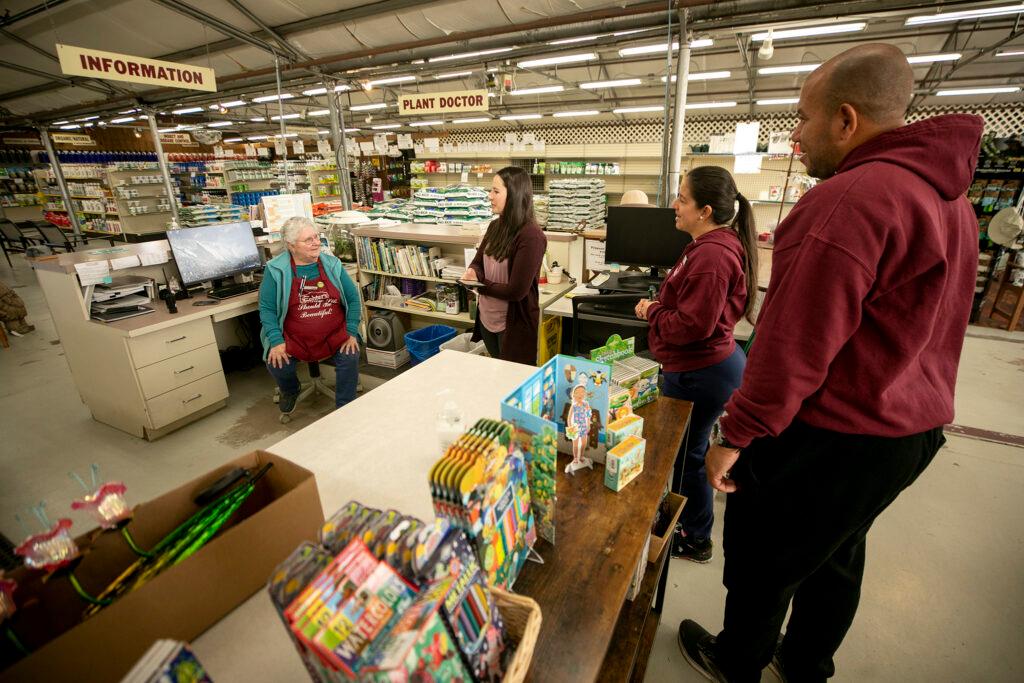
In fact, Echter hopes to inspire change far beyond her own company. She has launched a project to connect scores of new immigrants with potential employers in the “green industry” of plant growers and retailers.
“I was watching people go into these shelters and then move out onto the streets,” she said. “I wanted to learn about what was going on, and try to figure out some way to fix it … And then from a business standpoint, obviously it made sense.”
Last month, Echter tapped into a growing Facebook network of thousands Denverites who have helped newly arriving immigrants. She quickly learned the basics of immigration labor law. Then she rallied nine other plant-related businesses and connected with some 80 new immigrants who have work permits, including Salazar and Campos. An online spreadsheet helps the employers connect with job candidates.
She’s calling the effort New Roots and is actively searching for more participants. But just as these first new immigrant hires are getting to work, her own business, long a community favorite, is facing something it’s not used to: political blowback.
It started with a story on the local news about her project.
“We’ve received a lot of really bad criticism since the … story came out,” Echter said.
That’s included hundreds of posts on social media and about a dozen messages and reviews sent to the company, many of them accusing Echter’s of taking jobs away from American citizens, or of hiring illegal immigrants. That claim is false; Salazar and Gregorio Campos were processed and paroled by border agents and have legitimate work authorization.
“Meanwhile, you have homeless vets and homeless American citizens that need a job,” one commentator wrote. “If I lived in Arvada, I know which Garden Center I wouldn't be shopping at. This isn't the flex you think it is.”
One customer “had lots of trees in her yard from Echter’s, but she was never coming here again,” Julie Echter said while reading over messages in her office. “It’s hard to get bad reviews like that,” she added.
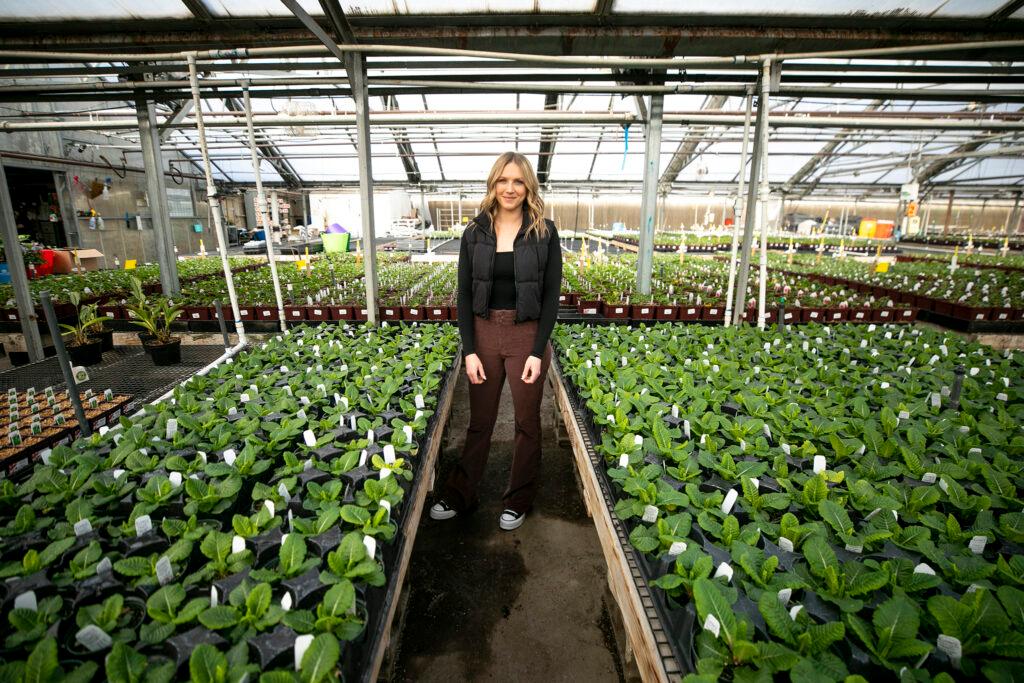
The same debate is playing out all over the country. On one side, immigration reformers — along with many Democrats and some Republicans — believe making it possible for newcomers to work legally is the fastest way to ease the strain on government resources. Gov. Jared Polis has urged the federal government to expand work authorizations.
“It would turn a burden into an asset. We have a workforce shortage. We have two job openings for every applicant, every unemployed person,” he said on Meet The Press NOW last year.
When host Chuck Todd asked if that would lead the state to welcome even more immigrants, Polis responded: “With the permission to work, we would love to have several thousand, without a doubt.”
But the issue’s more divisive among Republicans. While some like the idea of self sufficiency and helping businesses, many others oppose efforts that would help new immigrants get established in the U.S. Recent polling by Pew found that Republicans are far less likely than Democrats to see work authorization as a good response to the major increase in people crossing the southern border.
That division has been reflected in Washington. The bipartisan immigration deal that failed in Congress this month would have sped up work authorization for people seeking asylum, while also increasing border enforcement and providing funding for immigrant responses. GOP Rep. Lauren Boebert dismissed it as an “amnesty bill that gives illegals work permits and taxpayer-funded lawyers.”
There’s one area of agreement: The majority of Americans believe that jobs and economic opportunity are the top reasons people travel to the U.S. — and that’s correct, along with fleeing from violence, according to Chloe East, an economist at CU Denver who studies immigration.
But she said that one of the central critiques — that immigrants hurt local workers by saturating the jobs market — hasn’t proved true. While immigrant laborers can help to fill jobs, East argues that actually benefits other workers.
“Not only does [immigration] help the aggregate economy … but also it helps create new jobs for U.S. born workers. And I think that's really the most important, maybe surprising finding,” she said, referring to research by herself and others.
Immigrant workers tend to take the “less glamorous” jobs that Americans don’t want, whether that’s cleaning dishes or working in the back of a garden center.
That helps keep businesses running smoothly, in turn creating other jobs that may seem more desirable, East said. In fact, a sharp drop in immigration during the pandemic was one of the primary reasons that businesses like Echter’s struggled to hire in recent years, she said.
Despite the criticism, Julie Echter stands by what she’s doing — hiring people who are legally allowed to work and need the money.
“It’s important to encourage other businesses to consider this as an option. If the issue isn’t going away, we have to figure out a way to solve it,” she said. She’s planning to hire three more new immigrants, and hopes that others in her new coalition will make their first hires soon.
Still, there’s only so much individual businesses can do. Only a fraction of new immigrants are currently eligible for work authorization — perhaps 5,500 locally, according to the estimates of one group of nonprofits. Thousands of others must wait at least six months if they are applying for asylum, and may be unable to get authorization at all.
In the meantime, many work unofficial jobs like wiping windshields on street corners, or working in private homes as cleaners and cooks. They are joining hundreds of thousands of undocumented workers who already live in Colorado. And it’s long proved difficult to break that status quo, which ultimately benefits the businesses that exploit undocumented labor, East said.
“Having that pool of [undocumented] workers who are so desperate for work and for sources of income is of course going to be beneficial for businesses, who are going to be able to pay them low wages and not provide good working conditions. And I do think that that is a reason why … we haven't seen more broad immigration reform,” East said.
For their part, Salazar and Campos were excited to start on a new career — especially since gardening was a favorite hobby of hers in Venezuela.
“Me encantan las plantas,” she laughed.
“She enjoys this more than I do,” he added in Spanish. But he didn’t mind. It was their first day of official work in the country they now call home.
